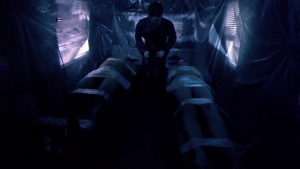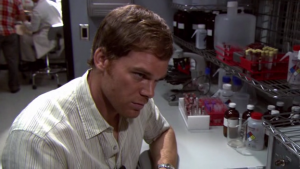Date read: 8.31.09 (second re-read – first read sometime in 2005)
Book from: Personal collection
Reviewer: Emera
Princess Lissla Lissar lives quietly and invisibly in the shadows of her father and mother, who are worshiped by the people, and whose love for each other is all-consuming. When Lissar’s mother mysteriously wastes away, she forces her husband to swear that he will not remarry unless he finds a woman as beautiful as she was. This promise comes back to haunt the kingdom when Lissar, becoming a woman herself, attracts her father’s attention for the first time. Driven from the kingdom by an unendurable ordeal, Lissar escapes with her only friend, her dog Ash, and struggles to survive and reclaim her sense of self.
McKinley is definitely one of those authors whose strongest points can also be their downfalls – in this case, it’s her uncompromising principles and fanatical attention to detail. Obviously, if you’re going to realistically retell a fairy tale as poisonous and wrong as Donkeyskin/Patient Griselda/Allerleirauh, you have to set out to make it pretty darn grim, and, well, much of Deerskin is full of dread, toil, and distress. It’s also beautifully written, compassionate, and defiantly empowering, even as it denies magical cure-alls and 100% happy endings. I know it’s actually the favored comfort reading of a lot of women because of how viscerally empowering it is to grit your teeth alongside Lissar, and watch her claw her way to sanity and independence, and to finally reclaim her ability to love and be loved.
It is easy, however, to be put off by the extent to which Lissar’s travails continue. On this re-read, I did think the book guilty of pre-climactic sag, and I think the writing of the climax itself is pretty flawed, in that its dream-vision aspects are overwrought and poorly communicated. Nonetheless, I think that the dynamics underlying it are pretty clear and compelling both dramatically and psychologically, and I can only imagine how difficult of a scene it must have been to write.
Overall, Deerskin is a powerful handling of an extremely difficult subject, and I can’t imagine anyone else doing it like McKinley does.
On a side note, I was also tickled to realize during this re-read that Deerskin is, sneakily, part of the Damar universe – the setting of The Blue Crown and The Hero and the Sword. McKinley slips in a brief reference to the events of the latter book, specifically, but I hadn’t yet read it when I first read Deerskin. Hmmm, now I really want to re-read The Blue Crown.
Go to:
Robin McKinley

